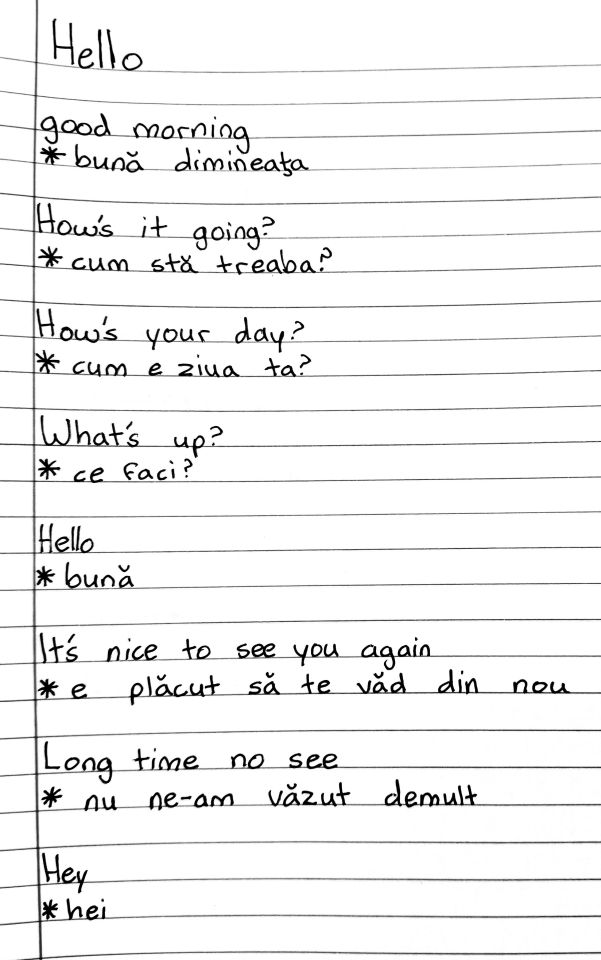Text
I often wonder how English distinguishing between “sentient pronouns” (he/she/they) and “inanimate pronouns” (it/its) affects our perception of the world.
I wonder if languages without this distinction foster more care towards the environment.
Animals and plants are usually referred to as “it”. Would we care for them more if we thought of them as sentient?
#brought to you by me calling plants he/she/they and greeting them and people finding me odd#lots of languages don’t have this distinction#it probably doesn’t make a huge difference in attitude in those languages#but in English where we do distinguish calling a plant <her> is a pretty big statement#this is kind of just me being weird tbh#pets are called by sentient pronouns#on the other hand maybe we don’t need to anthropomorphise nature#that isn’t always accurate#idk I’m just rambling here#not even mentioning it/its pronouns#sometimes users of it/its really appreciate the separation from humanity/human gender and norms#like it’s very interesting#anyway making it clear if you use it/its pronouns you’re very cool don’t get the wrong idea from this post#it would be amazing if it became the standard pronoun for everyone and everything#like that would be fascinating#maybe using a sentient pronoun would become a way to show closeness to someone or something#anyway idk what I’m on about#bye#language#langblr#linguistics#languages#quinn posts#environmental science
47 notes
·
View notes
Text
あいさつをしましょう
The following are common polite greetings (あいさつ) and responses. These can be used in work environments and with those above you in social standing.
A: 「ご出身(しゅっしん)はどちらですか。」 「お生(う)まれはどちらですか。」 A: Where are you from? / Where were you born? B: 「イギリス出身です。」 B: I am from England.
A: 「お住(す)まいはどちらですか。」 A: Where do you live? B: 「この近(ちか)くです。」 B: I live near here.
A: 「先日(せんじつ)はありがとうございました。」 A: Thank you for your kindness the other day. B: 「とんでもないです。こちらこそ。」 B: Please do not mention it. It is I who should say so.
A: 「どうぞお上(あ)がりください。」 A: Please come in. B: 「おじゃまします。」 B: Please excuse the intrusion.
「こちらでおかけになってお待(ま)ちください。」 Please have a seat here and wait.
A: 「お茶(ちゃ)をお持(も)ちします。」 A: I will bring some tea. B: 「どうぞおかまいなく。」 B: Please don't go to any trouble over me.
A: 「どうぞお召(め)し上(あ)がりください。」 A: Please go ahead and eat. B: 「では、遠慮(えんりょ)なくいたたきます。」 B: Thank you, I will have some.
A: 「ご無沙汰(ぶさた)しています。お元気(げんき)でいらっしゃいますか。」 A: It's been a long time since we saw each other. Have you been well? B: 「ええ、おかげさまで。」 B: Yes, thanks to you.
A: 「田中さんのご主人(しゅじん)、亡(な)くなったそうですよ。」 A: I have heard that Tanaka-san's husband passed away. B: 「そうですか。お気(き)の毒(どく)に。」 B: Is that right? I am sorry to hear that.
お目(め)にかかるのを楽(たの)しみにしています。 I am looking forward to seeing you. [Note: Used in letters, etc.]
社員: 「お先(さき)に失礼(しつれい)します。」 Employee: I will be leaving first. 部長: 「ご苦労様(くろうさま)。/お疲(つか)れ様(さま)。」 Manager: Thank you for your hard work. [Note: You cannot use the expression ご苦労様 (ごくろうさま) towards your social superiors]
部長: 「お先(さき)に。」 Manager: I'm heading out first. 社員: 「お疲(つか)れ様(さま)でした。」 Employee: You must be tired/Thank you for your hard work.
#日本語#japanese#japanese language#japanese langblr#japanese studyblr#langblr#studyblr#あいさつ#丁寧語#greetings#polite language#polite greetings in japanese#tokidokitokyo#tdtstudy
151 notes
·
View notes
Note
Buongiorno! Here in the US we often say things like have a good day/week/weekend/etc when saying goodbye to strangers. Besides things like ciao/buongiorno/arrivederci, are other goodbyes common in Italian culture?
Also during my brief stay in italy, I never heard anyone use arrivederci. Is ciao the more common goodbye?
Ciao! (I personally prefer to keep an informal mood on this blog, and generally this is valid for social media's settings or at least I got told so)
Well we do use arrivederci (or buongiorno again/buona giornata) and formal speech when we separate from people we are not very familiar with, especially elders (long ago, it was used also as a sign of respect with your own elders: children has to use informal speech with their parents and grandparents and so on). If nobody directly told you "arrivederci" is probably cause you're a foreigner (and we don't know if you actually would get our formal speech, so we may try to keep it easier and more comfortable with our world wide famous "ciao" and informal speech) or you interacted mostly with people your age/younger.
As for other greetings/goodbyes, yes we do use them as well. You can find some translations here.
#it#italian#langblr#italiano#italian language#italian langblr#languages#language#greetings#lingua italiana#italianblr
8 notes
·
View notes
Text
SAVE & SHARE THIS LESSON!
It has some basic #Hebrew vocabulary that you will use everyday. Give them a try 🤗
#hebrew#jewish#learnhebrew#hebrewbyinbal#language#hebrew langblr#israel#jew#torah#trending#hebrew lesson#Hebrew teacher#basic vocabulary#Hebrew vocabulary#travel vocabulary#greetings#thanks#sorry#share#save#jewish hebrew jew israel education books learn israeli judaism#jewish tumblr#speak hebrew
11 notes
·
View notes
Text
Oh the adrenaline rush from using your target language for the first time(s) in a face to face conversation
#It feels completely bizarre that I've been studying Slovene for a month only and I've already met Slovenian people two times this#summer thanks to my job! Greetings and thank-yous are pretty much all I'm able to say to them but they still get so excited#(and I get too – I didn't even think I'd meet any Slovenians here in Finnish Lapland at the tourist attraction I'm working this summer)#The guide of today's group even said he tries to bring me a book in Slovene when he comes back in a couple of weeks and if he really does I#might cry he was so nice 😭 And I've actually been wishing I could get my hands on a book that's written in Slovene how is this even real 🥹#mine#langblr#language learning
1 note
·
View note
Text
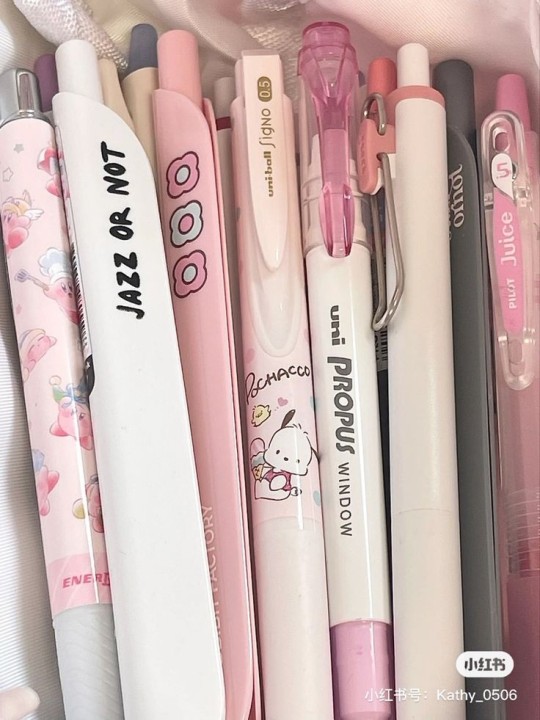
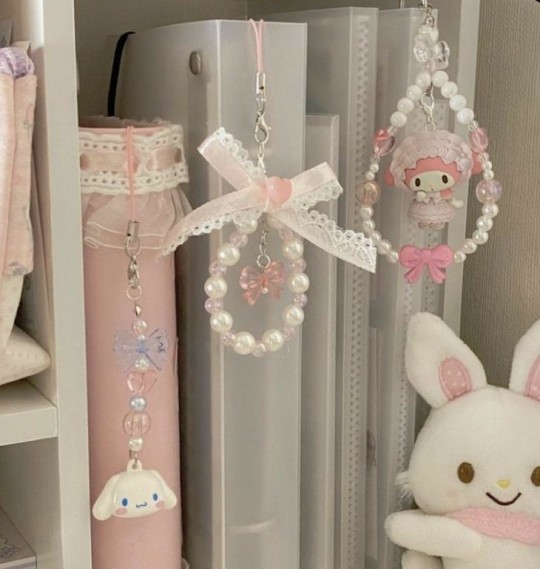
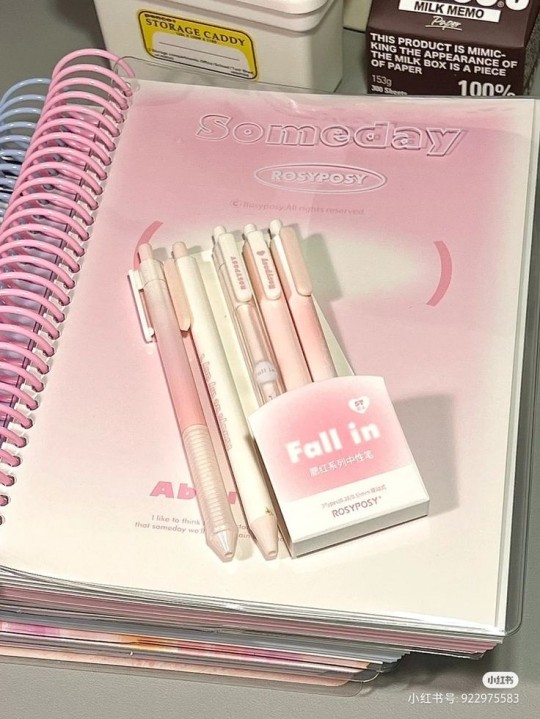
October Language Goals 🎀
I was thinking of posting a more structured study schedule for studying Japanese, but right now, I don't think that's a good idea because I'm not actually following a strict study routine or schedule. My available time to study varies so much on the day to day so having flexibility in how I study is definitely going to be and has been helpful.
These goals do help give me some useful guidance in how I use my study time, especially when I have a longer amount of time to study.
I am going to add an updated list of resources at the end of this post as I have found a good set of resources that are/will be helping me along this language journey.
🩷 Goals for the Month of October -
complete Genki I lesson 1 + lesson 2
build a flashcard list of 50-75 vocab in AnkiApp (currently 32/75)
learn 10-15 most common phrases/greetings
make a list of common things I say and find their Japanese equivalent
keep a 30+ day streak in Duolingo
keep a 30+ day streak in Busuu
post a speaking exercise per "chapter" in Busuu
test out WaniKani and see if I would like to utilize it as a resource
buy 2 to 5 manga in japanese (for future learning)
finish season 4 of Bungou Stray Dogs (for fun)
begin using AnkiDroid Genki I flashcard set in correspondence with the textbook lessons
start a beginner langblr challenge (either my own or find one to join in on)
I think this is a very doable list of goals given how busy my months and weeks have been. I will have a decent amount of free time, especially if I schedule all of my stuff efficiently. Now, on to a list of current resources!
🩷 Updated Japanese Language Resources -
Duolingo - I know she gets hated on but I love duolingo right now just for some daily practice on days where I have low energy or less time for studying. I turned off the romanji so I'm forcing myself to get more familiar either hiragana and katakana and I just find this app useful for vocab and silly daily practice.
Busuu - ohh, she has my heart right now. I actually bought premium for busuu for one year to give me time to actually use the app and get the most out of it. The audio is a little robotic sounding, but the exercises are helpful. They have speaking exercises that you can post to the community page and get native speakers to correct you! I honestly just love this app, and it also has a streak feature like Duolingo to keep me motivated to do some daily practice.
Renshuu - I still love renshuu as a resource because it’s the only reason I re learned the hiragana and katakana so fast, although I have not being using it as often lately. I still highly recommend the app! I want to keep using it and see how helpful it continues to be!
Language Drops - I like using this one to practice and learn some vocab every now and then. The free version only really lets you do five minutes a day but for a quick vocabulary review, that’s all I really need!
Genki I + II Textbooks and Workbooks - I've looked through the first lesson in Genki I and I honestly am so excited to use it once I have the time to sit down and study from it. My plan is to take notes from the textbook in my own notebooks, practice the exercises in the textbook and workbook, listen to the dialogue, and lots of flashcards!
Writing workbooks - I want to start using the two I have because I think it'll help me retain my knowledge of hiragana and katakana and even Kanji, once I get to the point where I'm learning Kanji.
Ankidroid/AnkiApp - These are two different apps, but they are both for flashcards. Their functionality is a bit different from each other, but they're still incredibly useful! I make my own flashcards in AnkiApp, but I use decks made by others in Ankidroid. This way I can keep studying what I already know but also can learn other things, if that makes sense? I'm using the Genki I deck on Ankidroid currently as I am preparing to use the Genki I textbook.
Google Keep Notes - I use keep notes to keep a record of my goals, resources, routines, etc. it’s so easy and simple to use and access, so I thought I’d mention it here
YouTube - I love watching YouTube videos about learning languages, thought I’m not advanced enough to start watching native Japanese content. Some YouTubers I like for their language tips are Tanya Benavente, Lidie Botes, and Zoe.languages. There’s a couple random videos about languages from, oh no Nina and The Bliss Bean, too.
that is all my goals and main current resources for the month of October. I’m thinking of starting like a language bullet journal, like a bullet journal/language tracking journal for Japanese? But I don’t know if I should? Maybe you guys can vote and give me some motivation to make a decision?
thank you guys! I did manage to complete most of my September goals, so that is definitely keeping me motivated right now! I haven’t had the most energetic of days but I think even a little bit of studying can be beneficial!
til next time lovelies! 🩷🤍
#pink pilates girl#pink pilates princess#self development#self care#self love#wonyoungism#health & fitness#mental health#physical health#it girl#language learning#language resources#language learning tips#learn japanese tips#japanese#language learning goals#langblr#japanese langblr#university student#college studyblr#studyblr#that girl#that girl energy#it girl energy#pink academia#pink aesthetic#girl blogger#girly blog#green juice girl#coquettecore
116 notes
·
View notes
Text
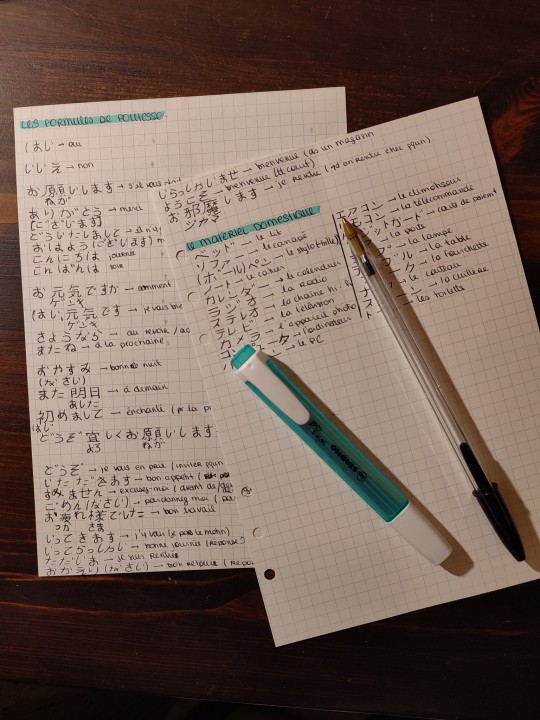
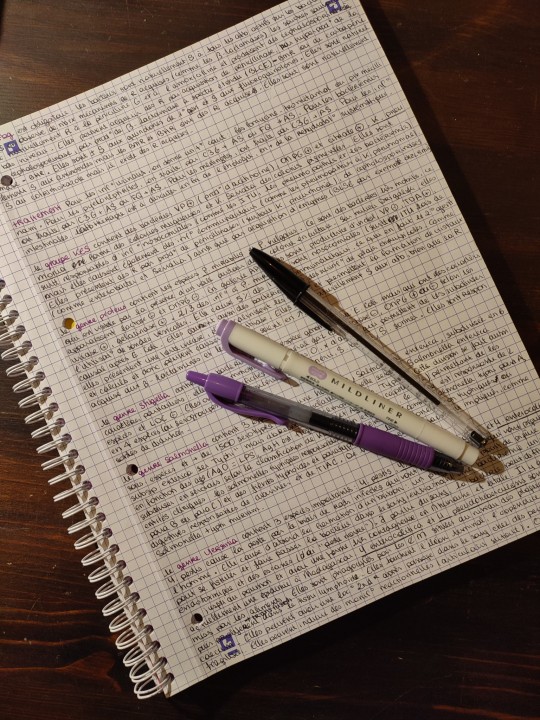
☀️ 02.02.2024 [🫥] // I went at my parents' house right after my lectures, studied a bit but I'm honestly really tired so I mostly did japanese ahah
In japanese learned some expressions like 初めまして which means greetings but only the first time you see someone if I remember it correctly ahah. But the other just won't stuck in my head.. it's どうぞよろしく but there is a kanji. Anyway that's enough langblr for today ahah
In bacteriology, I finished my lectures about the genus staphylococcus (I did the staphylococcus with negative coagulase) and the family Enterobacteriaceae (I did the genuses Shigella, Salmonella and Listeria). There is so much information to remember aaaah
I cooked my lunch for tomorrow as I'll work at the pharmacy all day. I also took out the dog and took a shower :))
To do
✅ do one session of code
✅ do one session of japanese
✅ sport (the app says it's my break day) + streches
✅ cook my lunch
#dailylar#studyblr#french student#french studyblr#study#pharmacyblr#studyblr community#pharmacy student#pharma student
53 notes
·
View notes
Text
fine, I'll introduce myself
Greetings, and welcome to my...collection. Call it weird, call it creepy, I call it home. Basic rundown, here we go:
-I am a gargantuan nerd. About nearly every academic subject to exist and still others.
-you may call me anything in good faith, but i am known as Jules
-pronouns (in order of preference): it/its, ve/verr/vyr, xe/xem, ae/aer, they/them
-my gender is multifaceted chaos, it cannot be constrained with labels
-otherworldly and incomprehensible thing
-within the realm of aroacespec
-main interests: linguistics, arthropods, folklore, research, color, light, neurodivergence, fonts, poetry, physics, plants, rocks
okay im actually getting around to putting my pronoun page
tags i use:
#eternal goblin chatter in my brain my original posts
#for the goblins future reference my saving stuff tag
#hopepunk self explanatory
#remember this for bad mental health days
#reblog bait block tag
#horror creepy/gore/thriller stuff
i don't sort neatly, i make no apology for this
sideblogs:
@consistent-scribbles [my shitty attempt at an art blog mostly dead rn
@el-bicho-muy-codicioso-conocer [spanish langblr, mostly piecemealed out of the dictionary
@another-animists-treasure [pagan blog for saving witchy/animism stuff of the religious persuasion
YOU CAN ALWAYS INTERACT WITH ME THAT IS AN OK THING TO DO AT ANY TIME i may not respond quickly but i encourage engagement
please don't tag me in "if this gets x notes" posts, reblog games are welcome difference between reblog bait and reblog games
no dni because they usually don't work and i can block whoever i don't want to be around
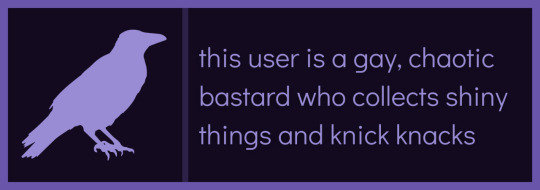






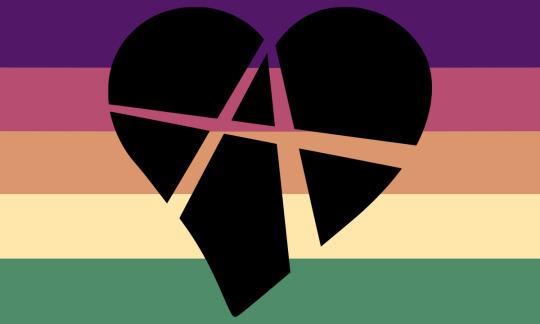

^ im sorry to all of the writers ive done this to
voidpunk credit
(nothing really that isn't here, just goofy)(and you can send me doodles)
18 notes
·
View notes
Text
'오랜만에'라는 표현을 파악하기 ✧ understanding the phrase '오랜만에'
✧ ✧ ✧ ✧ ✧ ✧ ✧ ✧
@zzzzzestforlife asked:
"ok, another Korean langblr studyblr post idea: how to say "after a long time" / 오랜만에 vs 길운 시간의 후 / like i don't get the difference 😅".
TLDR: The main difference between 오랜만 vs. any other translation of 'after a long time' is the context.
Although '오랜만' simply translates to 'after a long time', it means more specifically *something happens for the first time after a long time since the last time it happened*. A repeat action! Like meeting a friend for the first time in a while, or picking a habit back up!
Using '후' just means after, no extra nuance, so it has less niche use case :D
(the difference between just 'long time' 오래 vs. 긴 시간 is more complicated)
✧ ✧ ✧ ✧ ✧ ✧ ✧ ✧
check under the cut for example sentences and rambles ->->
I went a little deeper than the surface question again, content:
meaning of 오래 / common uses (오래, 오래 전, 오래되다, 오랫동안, -) / use of '오랜만' / ㅅ or ㄹ? + random bonus word / 긴 시간 vs 오래 / 오래 후 vs. 오랜만 / bonus grammar confusion
Let's start with just오래.
오래 by itself means a long period of time passing. Or just ~a long time~ I suppose.
It can be used alone:
오래 기다리고 있었어 - she'd been waiting for a long time
오래 머물거예요 - it's going to be here for a long time / to linger
Add 전 to make 'long ago':
그 극장은 오래 전에 헐렸어 - that theatre was pulled down a long time ago
오래되다 (lit. to become 오래) can be used to mean *old*:
그 오래된 극장이 헐렀나봐 - it seems they pulled down that old theatre
오랫동안 means during or while a long time is passing:
오랫동안 바라던 나의 소망이 마침내 이루어졌어 - my wish that I had desired for so long (for such a long period of time) finally came true
극장은 오랫동안 이 상태로 방치되어 있었어 - the theatre has been left in this state for (during) a long time
✧ ✧ ✧ ✧ ✧ ✧ ✧ ✧
Now for the phrase from the question:
'오랜만' is short for 오래간만, meaning after a long period of time since (X something).
It's a very common word in Korean. You'll often hear it said by itself when you bump into an acquaintance: "오랜만!!", "It's been a while!". Sometimes I feel it's more so a greeting than literal.
While 오랫동안 is used to mean during the period of time, 오랜만 means after. Specifically after the time that's passed since the last time you did this thing. For example:
오랫동안 못 잤어요 - i didn't sleep well for (during) a long time
진짜 오랜만에 잘 잤더라 - i slept well for the first time in (since) so long!
some more examples for vibes, sans translation:
오랜만에 소주 한잔 어때?
오랜만에 운동을 했더니 온몸이 쑤신다...
오랜만에 만났지만 별달리 할 말이 없구나.
The full 오래간만 is also still pretty common by the way. Heard it in an audio book a couple days ago with something like this:
그런 감정을 느낀지 참 오래간만이군요. - It really has been a long time since I've felt this way.
✧ ✧ ✧ ✧ ✧ ✧ ✧ ✧
//Bonus: Whether it's 오래-, 오랜-, or 오랫- is easy to get confused, right? That's okay, native speakers struggle with it as well! To the point that even in novels or news articles, you'll see '오랫만' - so don't worry if you mix it up haha. If you'd like me to write a post on when the ㅅ is added on words let me know, but for now just see these images as reference. Or don't! Most Koreans won't notice either way :)
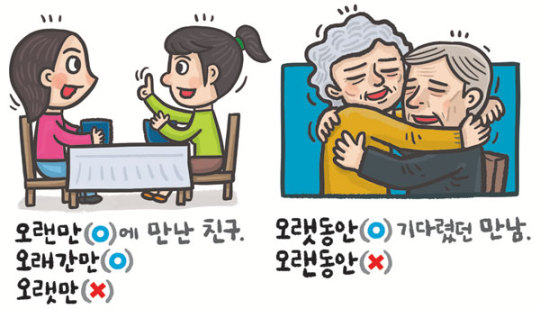
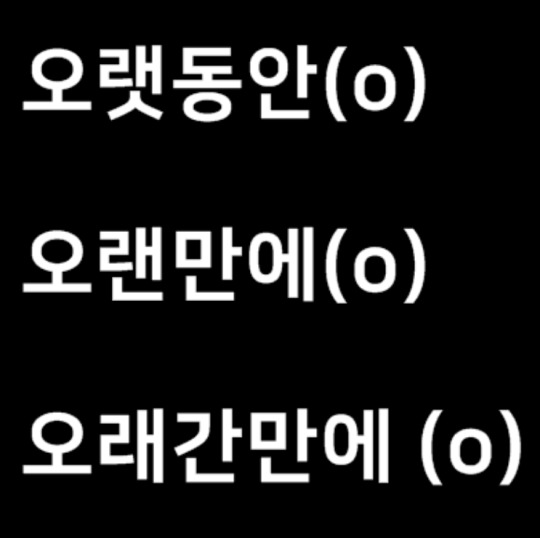
This blog post for example quickly explains it for Koreans, - here I found the bonus vocab for today: '지적당하다' -

- '지적(하다)' meaning to point out / to indicate / to criticize.
- the suffix '-당하다' makes the word it's attached to a verb, and indicates passivity. It means something like to receive x / to suffer x (/neg). It's used with words like to sustain injury, be demoted or fired, be a victim of of crime like fraud or stalking. In short - a negative thing happens to you.
So 지적당하다, in context = to suffer being corrected on your grammar lmaooo to get got by the grammar police
"오랫만에, 오랜만에 헷갈리지 마시고 카톡 쓸 때 괜히 지적당하지 말자고요! (저 지적 안 합니다...)"
rough tr.: "So let's not confuse '오랫만에' and '오랜만에' when writing a [Kakao] message just to end up being called out on it! (I wouldn't correct you…)"
✧ ✧ ✧ ✧ ✧ ✧ ✧ ✧
Okay so that's 오래 - then what about the more literal translation '긴 시간 후'?
1./ 긴 시간 and 오래 can both translate to 'long time' in English. So what's the difference?
!! Full disclosure, I'm not entirely sure here! It's not gramatically wrong as a translation, but it's not used the same way - at least not commonly to my knowledge. It simply feels less natural (to me) than the idiomatic 오랜만, but it could just be more formal and direct. I couldn't find a clear answer online, and haven't checked with a native speaker yet. In any case, it's definitely less casual.
2./ 오랜만 vs. 오래 후
Besides being less common and casual, there is one more difference between specifically the "after" - 긴 시간 후 vs. 오랜만 - that's probably the main answer to Zesty's question.
As I wrote before, 오랫만 means something happens for the first time after a long gap since the last time it happened - so it's about a repeat action! It can't be used to talk about just anything that happened after an undefined long stretch of time has occurred.
But 뭐뭐~ 후 can! It's simply after a long time with no other nuance.
But whether 긴 시간 후 can be used in the same way as say 오래 후?? I dont know~ ! Check #1 haha.
It took me a while to figure this out myself!! It's not something I was able to read anywhere either, only halfway through writing this post, the specific nuance clicked. Even though I've used the phrase a billion times! Goes to show just how much you pick up on without having to study it, even in a new language :)
anyway here's my best guesses on how to use 긴 시간 logically that I will send off to my friend - don't take them as learning material haha:
긴 시간을 들여 이 작품을 완성했어요 - I invested a lot of time to complete this piece.
긴 시간 후에 완전히 회복되었어요. - It took a long time, but I've finally recovered.
✧ ✧ ✧ ✧ ✧ ✧ ✧ ✧
// Bonus: I'm actually not sure at all which meaning of 만 applies here! It's not pointed out anywhere directly. Looking at the wiktionary for it, there's a few options that could apply? I'll ask a korean linguistics major friend of mine and report back :)



✧ ✧ ✧ ✧ ✧ ✧ ✧ ✧
Anyway that's it for my little exploration of the phrase '오랜만'! Let me know if you have thoughts or questions!
16 notes
·
View notes
Text
langblr re-introduction post
Hi !
My name is Alexis and I’ve always been an active viewer of the langblr community, but I find that it can be a great way to keep consistent of your goals thanks to all of the great langblr challenges that are posted!
About me :
My pronouns are she/her
I am 22 years old
My birthday is July 12
I am Filipino-American-Canadian (?)
I was born in Seattle and I moved to Montréal, QC when I was 18 for university
I studied Political Science and French and will be obtaining my diploma in June 2023 !
I currently work as a barista at an independent cafe (my starbucks days are LONG GONE) and I can make some pretty bad-ass latte art (don’t get too excited tho, I can’t do a swan but there’s plenty of time for that)
Languages I learn in the order that I learned them
English (fluent)
Spanish (A2 - B1) I started learning spanish in high school (oh, the American education system, how you taught me so little and so much at the same time) and Spanish was still kind of in my life because it helped me to learn French, then I stopped speaking it, took an intensive intermediate class during Summer 2021 because I needed to fill in elective credits, then stopped again
French (B2) Since I lived in Montréal, I wanted to be better integrated into Montreal society and not feel bad whenever I had to respond with a “HI!” after someone greeted me “Bonjour!” I loved French so much that it became my second major, which was a good thing and a bad thing because it made me hate French sometimes but then love it again! I look to make another post explaining my relationship with French as this is only an introduction post, but look where we are now.
Tagalog (A1) I am Filipino and my parents speak Tagalog, but I never learned it growing up, which I regret DEEPLY.
Goals !
Spanish: become conversational ! At my cafê, there are a few hispanohablantes that come in and I would love to be able to take their order and even start small talk with them.
French: talk about more diverse subjects and be more comfortable speaking to natives. I know that I can speak it, but it just comes to a matter of me having the courage to say what I want to say.
Tagalog : …become conversational. Yeah, I may sound like a broken record, but isn’t that the point of learning languages? To be able to speak with people in their native languages so you can understand them better?
Welp, that’s all for now, if you made it this far, I think you’re pretty cool.
28 notes
·
View notes
Text
Langblr Reactivation Challenge 3.2
Write about a festival or holiday that is celebrated in a country that speaks your target language. This can be either something you’ve celebrated yourself, have wanted to participate in, or have never heard of before. You can write this in any language you’d like.
A lot of the (major) holidays in the countries that speak my target languages are very Christian in origin, so since another one of my target languages is Yiddish, I thought I would take the chance to talk about -- and learn some Yiddish phrases related to -- the next major Jewish holiday, which is Rosh Hashanah, the Jewish New Year.
This year, Rosh Hashanah starts on September 15th and end on the 17th, but the dates change every year because the Jewish calendar is lunisolar. (Rosh Hashanah falls on the 1st and 2nd of the month of Tishrei in our calendar). This year, the new year will be 5784.
One of my favorite things to do for Rosh Hashanah is to cook/bake a lot of traditional food and invite my friends over. One of the things I make every year is challah, which its traditional to shape int a round loaf instead of the normal braided one for the new year. I also like to bake honey cake, and have apple cider to drink, since apples and honey are both traditional foods for the holiday.
I realized as I was thinking about this that I only know how to wish someone a happy new year in Hebrew, not in Yiddish, except for the generic "Gut yom tov" that can be said for most holidays. In searching, I found a really cool article about old Yiddish-language Rosh Hashanah greeting cards, many of which had little poems on them wishing people a good new year. I think my favorite is this one:
Mir zogn aykh di bsoyre on: Es kumt a nayer tsayt Fun likht un shayn, fun glik un freyd, Di velt zi vert banayt.
Which translates to "We’re bringing you the tidings: A new age is on its way with light and shine, with happiness and joy. The world is being reborn!”
2 notes
·
View notes
Text
147/365 no zero days in 2023 langblr challenge
We went on a wildlife watching ship today :)
--------------------------------------
Spanish:
-some new expressions
-some short vlogs
Catalan:
-some duolingo exercises
-some greetings
0 notes
Text
Pleasure/Nice to meet you on here! Now try it in Hebrew as you go out into the world 😊
#hebrew#jewish#learnhebrew#hebrewbyinbal#language#hebrew langblr#israel#jew#torah#trending#learn hebrew#greetings#good manners#miss manners#manners#nice to meet ya#nice to meet u!#nice to meet you#pleasure#speak hebrew#jewish tumblr#jewish things#jewish culture#hebrew course#be nice
11 notes
·
View notes
Text
🍉 あいさつ 🍉
Some basic greetings you can utilize!
おはよう [Ohayoo] - Good Morning
おはようございます [Ohayoo Gozaimasu] - Good Morning. (polite/formal)
こんにちは [Konnichiwa] - Good Afternoon.
こんばんは [Konbanwa] - Good Evening.
さようなら[Sayoonara] - Good Bye.
おやすみなさい [Oyasuminasai] - Good Night.
ありがとう [Arigatoo] - Thank You.
ありがとうございます [Arigatoo Gozaimasu] - Thank you. (polite/formal)
すみません [Summimasen] - Excuse Me; I’m sorry.
いいえ [Iie] - No; Not at all
いってきます [Ittekimasu] - I’ll go and come back.
いってらっしゃい [Ittterashai] - Please go and come back.
ただいま [Tadaima] - I’m home.
おかえりなさい [Okarinasai] - Welcome home.
いただきます [Itadakimasu] - Thank you for the meal.
ごちそうさまでした [Gochisoosamadeshita] - Thank you for the meal (after eating)
はじめました [Hajimemashita] - How do you do?
よろしくおねがいします [Yoroshiku Onegaishimasu] - Nice to meet you.
#japanese#japanese vocab#learning japanese#learning#vocabulary#japanese vocabulary#japan greetings#jpn greetings#jpn language#jpnblr#jpn#jp#langblr#studyblr#studyblr language#studyblr japan#japanese langblr#greetings langblr#greetings1
9 notes
·
View notes
Text
お久しぶりですね。(Long time no see.)
しばらくですね。(It's been a while.)

10 notes
·
View notes
